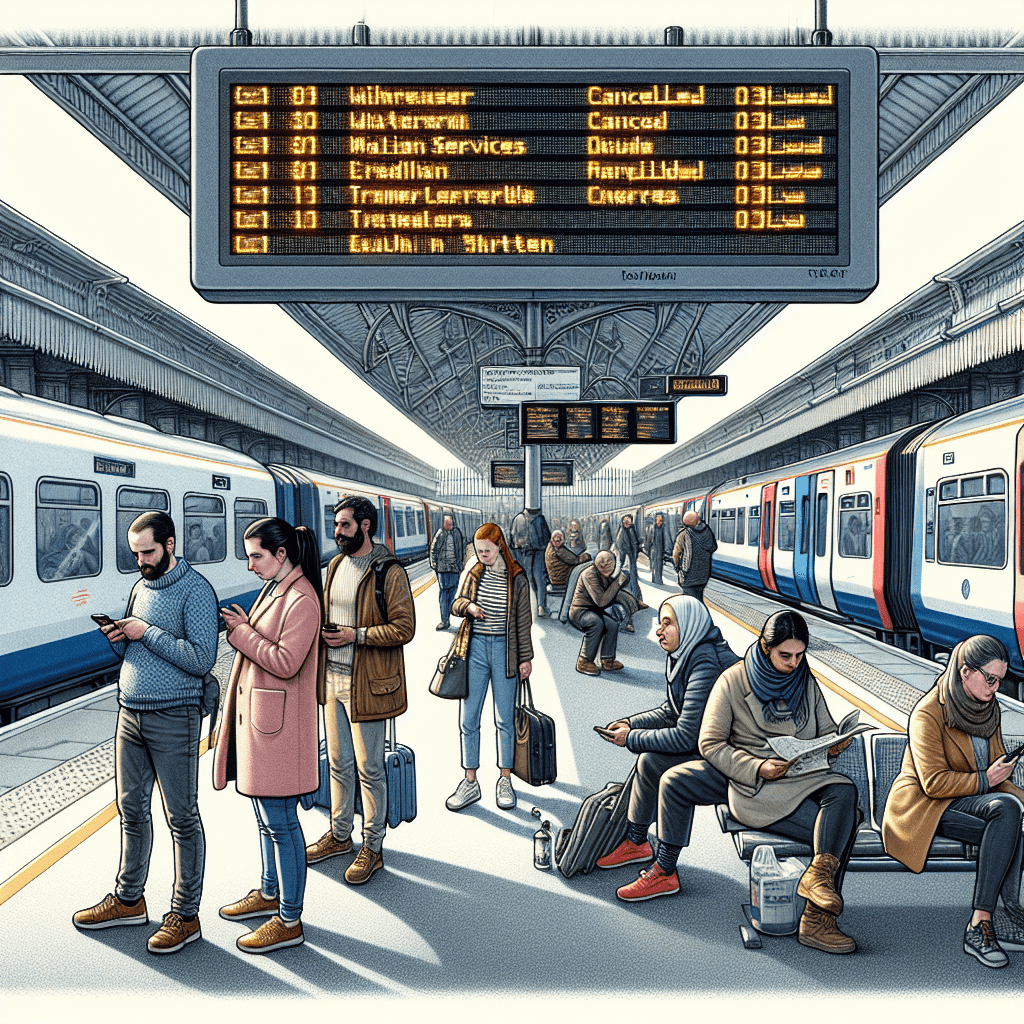Overview of the January 2024 Train Strikes
The January 2024 train strikes represent one of the most significant disruptions to rail services in recent history. Triggered by an amalgamation of issues including pay disputes, concerns about working conditions, and debates over future railway operations, these strikes have affected countless commuters, businesses, and even broader aspects of the country’s infrastructure.
As largescale industrial action occurs across the network, the strikes have manifested as a severe challenge for both the rail operators and the unions involved. Beyond the immediate impact on daily commutes, the strike action has sent ripples through the economy and has been the subject of intense political debate.
Background and Causes
To understand the January 2024 train strikes fully, one must consider the precursors that paved the way for this industrial action. Years of debate over railway funding and worker pay culminated in a standoff between employees, represented by their unions, and the train operating companies. Several key factors contributed to the dispute:
–
Wage Stagnation and Inflation : A central issue is wage stagnation amidst rising inflation, which has effectively reduced real-term earnings for many workers within the sector.
–
Working Conditions : There are also long-standing concerns regarding working hours, staffing levels, and workers’ safety, which employees insist need urgent attention.
–
Modernization : Proposals for railway modernization, including job cuts and changes to operational procedures under an efficiency drive, have met with resistance from trade unions who fear such changes may undermine service quality and job security. Timeline of Events
Timeline of Events
Events unfolded rapidly as negotiations between employers and union representatives repeatedly stalled. The following is a timeline highlighting key moments leading to and during the January 2024 strikes:
–
Late-2023 Discussions : Attempts to find a resolution before year-end were unsuccessful as talks broke down.
–
Early January Announcement : The initial dates for strike actions were declared in early January after a final round of unsuccessful negotiations.
–
Escalation and Widespread Action : What began as isolated disputes soon escalated into national action, with multiple rail unions coordinating strike dates.
–
Public Reaction : The strikes drew a mixed reaction, with a large section expressing solidarity with workers while others expressed frustration toward the disruptions.
–
Government Involvement : With a significant impact on the national economy and infrastructure, there were calls for governmental intervention. Impact of the Strikes
Impact of the Strikes
The impacts of the January 2024 train strikes were wide-reaching and multifaceted.
–
Commuter Challenges : Millions of passengers had to find alternative transport methods or were forced to cancel their plans entirely.
–
Economic Impact : Businesses suffered due to reduced foot traffic and issues within their supply chain caused by limited freight movement by rail. Indirectly, regional economies felt the absence of commuters who contribute to city center economies.
–
Political Ramifications : The strikes became a hot-button political issue, inviting scrutiny over the management and future of public transportation infrastructure in the country. Future Outlook
Future Outlook
While the outcome of these strikes remains to be seen at this point in time, their legacy will influence both immediate policy considerations and long-term strategic planning for national transportation.
Both sides advocate for change in terms of wages, conditions and safeguarding future operations but must contend with economic limitations and pressures on public services. Future negotiations tend to look at longer-term strategic investments that balance quality service provision with fiscal responsibility.
Meanwhile, the unions continue to emphasize the necessity of protecting their members’ interests. How this is reconciled with modernization demands may set a precedent for industrial relations in other sectors as well.
